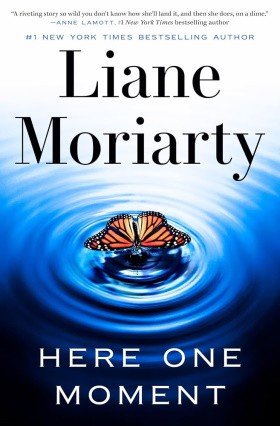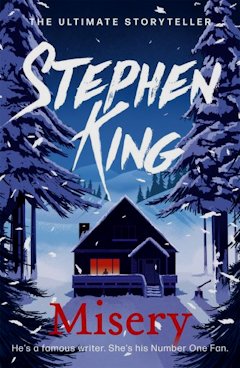It sounds like she has suffered a cataclysmic injury.
Leo is so badly startled that he narrowly misses chopping off the top of his thumb. He drops the knife and runs. Neve dumps the laundry basket, leaps athletically over it, and also sprints in the same direction.
Meanwhile Oli leisurely wraps his towel around his waist, wipes a circle in the steamed-up mirror with the palm of his hand, turns to one side to admire his flexed biceps, and wonders what’s up with his sister.
The scream has come from the living room, where Bridie is sitting in the middle of the couch cocooned in a king-sized yellow blanket so that only the top of her head is visible.
Leo yanks the blanket away to reveal Bridie sitting cross-legged, head dropped so low her forehead is practically touching her damned phone, which they unwillingly gave her when she started catching the bus to school but which has now become the bane of their existence. Leo has installed all the latest parental controls on both kids’ devices, but he suspects Bridie and Oli can both hack them with their superior technological skills. He and Neve keep coming up with new agreements—no phones after dinner, no phones before breakfast, no phones in the car—but the kids also know how to hack the agreements.
“What is it? What’s wrong?” Neve examines Bridie’s hairline with her fingertips, lifts and turns her limbs back and forth.
“What happened?” says Leo. “Where does it hurt?”
Neve looks around suspiciously. “Did your brother do something? I thought he was in the shower.”
Bridie looks both angry and vindicated. Her face is red, as if she’s been slapped. “Daddy is going to die, just like that lady said.”
“Oh, please, not this again.” Neve plonks herself down next to Bridie. “You frightened the life out of me.”
“I’m not going to die.” Leo sits on the other side of Bridie. “I told you. Why are you still thinking about this?”
He rubs his face, smells onion on his fingertips.
Bridie holds up her phone.
“Nope! We don’t need to see any more proof of psychic predictions coming true,” says Neve at the same time as Leo says, “Maybe show us after dinner?”
“I think she was on the plane,” says Bridie.
“On your dad’s plane?” asks Neve sharply.
“Look.” Bridie gives them her phone. Then she picks up a cushion and holds it in front of her face. “I’m not watching it again.” Her voice wobbles. “It’s very bad.”
Leo and Neve look at each other.
“Press play,” says Bridie, her voice muffled by the cushion pressed against her face.
Chapter 55
It’s probably happened to you at least once. You’ve had a premonition. You knew exactly what was about to happen before it happened. You knew you were going to win the raffle just before your ticket was called. You were thinking about someone the moment before they phoned or emailed or texted. You had a feeling something dreadful or wonderful would happen on a particular day and it did.
If listening to your intuition results in something of monumental significance, it changes you. Of course it does. How could it not?
Once, my grandmother was pinning washing on the clothesline. She had her beautiful baby, my mother, in a basket at her feet. Everything was lovely. The baby cooed and blew bubbles. The magpies warbled. Then my grandmother sensed danger.
How could there be danger?
She looked down just as a red-bellied black snake slithered across her precious baby’s stomach toward her tender neck. Grandma reacted instantly, instinctively. She grabbed the hem of her baby’s smock. She hoisted her out of the basket in one swift movement. She spun her above her head like an Olympic discus thrower.
“I don’t think you really spun me above your head,” Mum would say.
“Excuse me, were you there, Mae?”
“Yes, I was there, Mum.”
“Very funny.”
“No wonder Mae’s brain is scrambled,” Auntie Pat would chortle.
“I just knew,” Grandma would say. “I sensed it. I had this dreadful feeling of doom.”
“No, you didn’t,” Grandpa would argue, “you heard something, like a rustle, or you caught a tiny movement out of the corner of your eye.”
Grandma would cross her arms, stick out her bottom lip, and say nothing more until Grandpa said, “All right, Lizzie, you’re right, you knew, you just somehow knew.”
He wasn’t silly.
Then he’d get his cup of tea.
—
Before my father was struck by lightning, my mother was ordinary.
Well, not to me. She was charismatic and clever, clearly the prettiest of all the mothers I knew, with the most beautiful complexion, and she was the first mother on our street to learn to drive, which made me very proud, but what I’m trying to say is she wasn’t “unusual.” She spent her days on domestic tasks: sewing, cooking, laundry, and gardening. She swore when the magpies dropped mulberries from our tree over her clean washing on the line. She cried over the brick-sized romance novels she borrowed from the library.
Yes, she read palms, but it wasn’t serious. She was mimicking Grandma. She never charged a fee and if she did a reading for her girlfriends they normally ended up in fits of giggles. I think Mum predicted wicked things about tall, dark, handsome men. She read my tea leaves, because I begged her to, but it was like asking her to tell me a story. I don’t think either of us truly believed it.
We had the same superstitions as most people we knew. We knocked on wood. If we spilled salt we threw some over our left shoulder. If we cracked a double-yolk egg we said, “Someone is having twins!” and we never checked if anyone actually did have twins. We crossed our fingers for luck. It was all in good fun.





















